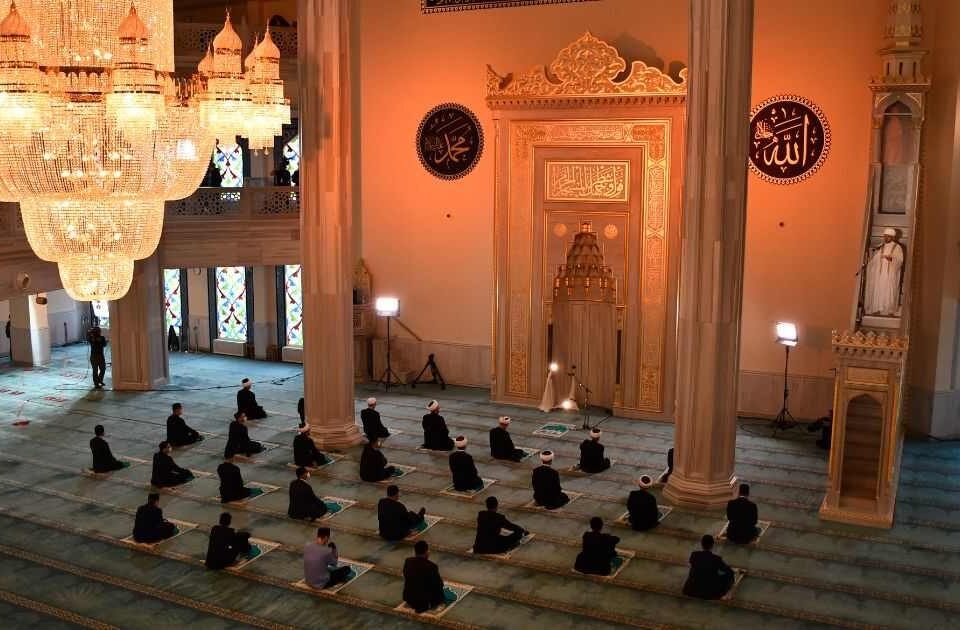
Black Magic History, Rituals and Consequences of Casting Black Magic
2024-05-29
Understanding Jinn Possession: Protection and Prevention in Islam
2024-06-05Self Care:
Self Care refers to the practice of taking deliberate actions or behaviours to preserve or improve one’s own holistic well-being.
Your holistic well-being in not just physical what most people think, it covers many areas of life such as:
- Physical Health
- Emotional Health
- Mental Health
- Spiritual Health
- Social Interaction (relationship with family, friends, community, colleagues etc)
Note: at times your behaviour, financial and other external influences may influence your holistic well-being because they are all interconnected and at times in life external influences are beyond your control. Here comes the point then how to deal with such situations which are beyond our control.
Self Care is highly individual, meaning it varies from person to person based on their unique needs and preferences
The answer is Faith, believe in One God (Allah), who is the creator of the universe and earth. For HIM (Allah) nothing is impossible. Connect to Allah. He tells us in Quran:
The Originator of the heavens and the earth. When He decrees a matter, He only says to it: “Be! ـ and it is”
(Surah Baqarah 2:117)
He is the One who created the heavens and the earth, truthfully. Whenever He says, “Be,” it is. His word is the absolute truth. All authority is His ˹alone on the Day the Trumpet will be blown.. He is the Knower of all—seen or unseen. And He is the All-Wise, All-Aware (An’aam 6:73)
It’s noteworthy that self-care is highly individual, meaning it varies from person to person based on their:
- unique needs and preferences
- What phase of life one is going through and what factor to prioritise at that particular time of life one is going through; and he or she is in a best position to determine what to prioritise, but whatever action you take remember:
The awareness of Allah’s constant presence and knowledge becomes the guiding light that shapes their actions even when no one else is watching. They recognize that upholding Islam in solitude holds equal significance in the eyes of Allah as performing righteous acts in public. The steadfastness of true believers in solitude reflects the depth of their connection with Allah and their unwavering commitment to their faith.
It encompasses a wide range of activities and practices that individuals engage in to manage stress, maintain physical and mental health, and enhance overall quality of life. Here are some key aspects of Self Care:
1. Physical Self Care:
- Exercise: Regular physical activity to maintain fitness and overall health.
- Nutrition: Eating a balanced diet to provide the body with essential nutrients.
- Sleep: Ensuring adequate and quality sleep to allow the body to rest and recover.
- Hygiene: Maintaining personal cleanliness and grooming.
2. Emotional Self Care:
- Stress Management: Techniques like mindfulness, meditation, or relaxation exercises.
- Emotional Awareness: Recognizing and acknowledging one’s feelings and emotions.
- Healthy Boundaries: Setting limits to protect oneself from emotional harm.
3. Mental Self Care:
- Continuous Learning: Engaging in activities that stimulate the mind, such as reading or puzzles.
- Mindfulness and Meditation: Practices that help maintain mental clarity and focus.
- Therapy or Counselling: Seeking professional help when dealing with mental health issues.
4. Social Self Care:
- Relationships: Building and maintaining healthy relationships with friends and family.
- Community: Participating in community activities or social groups.
- Communication: Effective and open communication with others.
5. Spiritual Self Care:
Connect to Allah (God), your heart will only find peace in the remembrance of Allah.
“Those who have believed and their Hearts are re-assured by the remembrance of Allah, Indeed it is only in the Remembrance of Allah that the heart finds peace.” (Surah Ar-rad 6:28)
As sincere Muslims embrace the sanctity of solitude, they find solace in knowing that their Creator is closer to them than their jugular vein (Surah Qaf 50:16).
In the above Quranic verse, Allah’s watchful gaze pierces through the veils of the seen and unseen, reaching the core of the believers’ souls. In moments of solitude, without the scrutiny of human eyes, the innermost self is laid bare before the Almighty, free from external influences and distractions. It is here that the true essence of faith is unveiled, and the sincere devotion of the heart is tested.
“And whether you keep your talk secret or disclose it, indeed, He is Knowing of that within the breasts.”
This divine revelation serves as a powerful reminder that Allah, the All-Knowing, is fully aware of every whisper of the heart, every secret thought, and every action, whether performed in public or concealed in the sanctuary of solitude. For the devoted Muslim, the test of faith is not only in how devoutly they uphold their beliefs when the world watches, but equally crucially, how sincerely they remain dedicated to the path of righteousness when none but Allah observes.
- Reflection: Taking time for personal reflection and meditation.
- Practices: Engaging in spiritual practices such as prayer, yoga, or attending religious services.
- Nature: Spending time in nature to connect with the environment.
Other External Influences:
Practical Self-Care:
- Organization: Keeping one’s environment organized and clutter-free.
- Time Management: Prioritizing tasks and managing time effectively.
- Financial Management: Budgeting and managing finances responsibly.
Self-care is highly individual, meaning it varies from person to person based on their unique needs and preferences. The goal is to engage in activities that promote overall well-being and help maintain balance in one’s life.
Reference:
Conclusion:
In Islam, taking care of yourself means looking after your physical, mental, emotional, and spiritual well-being. These areas are connected, and things like how you act and your money situation can affect your overall health.
A good self-care routine means doing things like exercising regularly, eating well, sleeping enough, and keeping clean. To feel emotionally good, it’s important to handle stress well, understand your feelings, and set boundaries. Taking care of your mind involves learning new things, staying mindful, and getting help if you need it. Socially, it’s about having strong relationships, being part of your community, and communicating well. And spiritually, it means connecting with Allah, finding peace through prayer, doing spiritual practices, and using Ruqyah services for healing and protection.
Islam teaches that faith in Allah is important for self-care. By following Islamic teachings, you can deal with life’s ups and downs better and live a satisfying life. Remember, self-care is personal, so focus on what works best for you.




